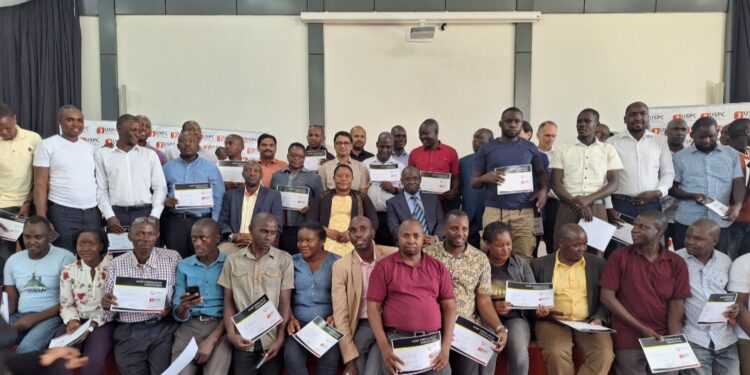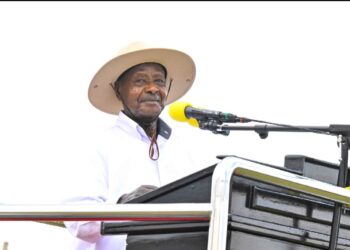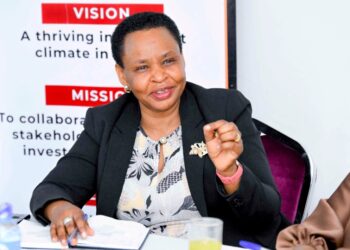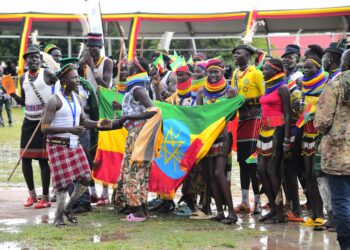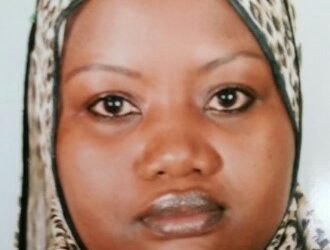The Minister for the Presidency, Hon. Babirye Milly Babalanda has urged the key parties in the National Security Information System (NSIS) project to work together in order for the program to succeed.
Hon. Babalanda advised that as stakeholders, they all have clear and distinct mandates, so they should not look at themselves as competitors but rather as colleagues with a common goal.
The Minister made the remarks today while closing a 10-day Modular Open-Source Identity Platform (MOSIP) 101 capacity building training, held at the Uganda Institute of Information and Communications Technology (UICT) – Nakawa.
“It is my understanding that the training is a precondition to the successful implementation of the NSIS Project. Relatedly, I am also aware that the NSIS Project is a key foundation for some of the critical government exercises that include mass renewal and mass registration for the national IDs and the National General Election Road,” Hon. Babalanda said.
“As the Political Supervisor of Uganda Security Printing Company (USPC), I will not allow you to contribute to the Government’s failure. Similarly, I will not sit and watch any person who will become a stumbling block to the execution of your mandate,” she added.
On May 17, 2023, the Government of Uganda, working in collaboration with the International Institute of Information Technology Bangalore (IIITB), India adopted MOSIP to support the National Identification & Registration Authority (NIRA) in the implementation of the NSIS Project.
Organised by USPC and IIITB, the capacity-building training was aimed at enhancing local capacity in the preparation for the development and deployment of the NSIS Project. The training that started on 10th July, 2023 attracted a total of 88 participants drawn from key institutions that have a role to play in the implementation of the project.
Whereas the Minister was happy to note that 88 participants have been trained, she brought to the attention of USPC and IIITB that this number was just a drop in the ocean, considering the amount of work that is going to be done during the implementation of the NSIS Project and the capacity requirements.
“There is a greater need to train more personnel so that the project gets implemented effectively and efficiently,” she advised.
Hon. Babalanda further congratulated the participants for having successfully concluded this training and tasked them to take the program as a great opportunity which they can use to expand their knowledge base.
“Please, put into practice the knowledge and skills that have been passed over to you so that we can get out of the enslavement of copyrighted technologies. We have been robbed through vendor-locked technologies and I believe that this is the right time for us to start on our journey to IT freedom and independence,” she noted, adding, “You need to appreciate that ICT is one of the key drivers for the realization of the goals of the National Development Plan – (NDP 3). If Uganda is to move forward, we need to embrace ICT.”
Professor Muhammad Ngoma, the USPC board Chairman underscored the importance of the project and called upon stakeholders to ensure that it is fully implemented.
“Participants passed all the tests and they are ready to transfer knowledge and implement this project. The system will be up and running by December this year,” Professor Ngoma said.
USPC Managing Director, Mr. George Mugerwa said the training is one of the deliverables of the Memorandum of Understanding which was signed between USPC and IIITB.
He also thanked the Minister for the guidance extended to the company over the implementation process of the project.
Mr. Krishnan Rajagopalan, MOSIP Head-Country Implementations explained that the system was developed five years ago and so far its functional in 11 countries.
Mr. Rajagopalan assured the Minister that MOSIP has the experience and capability to help the Government of Uganda to implement a digital and a foundational identity system in a cost effective way.
“We are very happy that the Government of Uganda considered using MOSIP. We promise to render help to make the project a success,” he said.
Specifically, 56 participants were drawn from NIRA, while 18 were drawn from institutions that included, the Office of the President, USPC, Veridos GmbH, the Electoral Commission, Internal Security Organisation (ISO), Ministry of Finance Planning and Economic Development (MoFPED), State House, Uganda Revenue Authority (URA), Ministry of Internal Affairs, Directorate of Citizenship and Immigration Control (DCIC) and Technology Associates (TA).
Do you have a story in your community or an opinion to share with us: Email us at editorial@watchdoguganda.com

